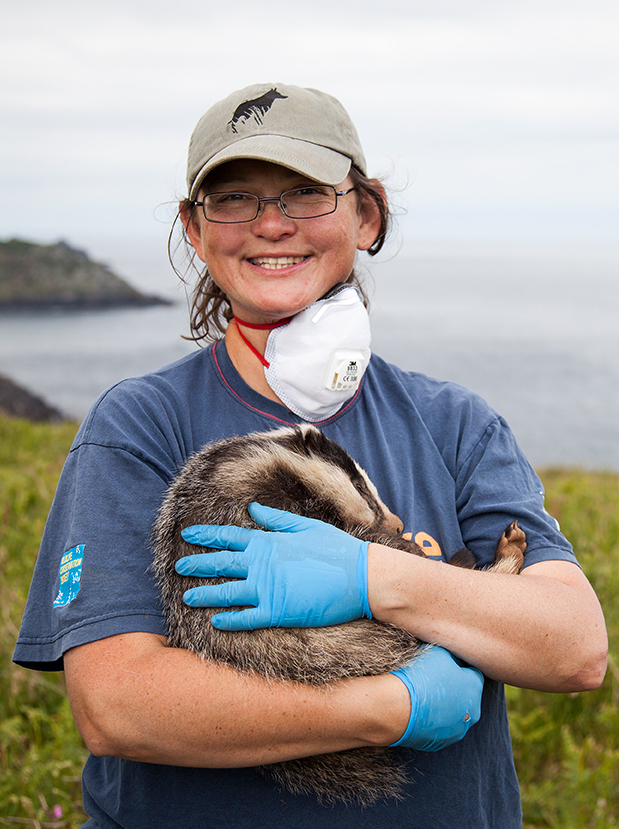The bovine TB (bTB) Partnership comprises members with extensive experience and expertise in the farming industry, private veterinary profession, non-government organisations, academia, local authorities, and government.
Chair
John Cross
Why are you interested in bTB?
Because it is an incredibly successful and tenacious pathogen that does enormous damage to mankind and animals, so it’s defeat becomes a morbidly fascinating endeavour.
What would be your personal motto?
Numquam Desistas. (Never give up.)
What do you hope the Partnership will achieve in the next five years?
Design and build a comprehensive and successful deployment programme for the vaccination of cattle against TB, as a new weapon in our armoury against this disease.
What is number one on your life bucket list?
Catch a Marlin and then let it go.

Member organisations
Ele Brown
Deputy Director bTB Programme, Department for Environment, Food & Rural Affairs (Defra)
What do you think are the best skills that you bring to your job?
I used to work as a vet in first-opinion practice and having that technical background really helps me understand the bTB problem. It also helps me empathise with the vets and farmers we work with. The vet training really helps with policy making too and I previously wrote a blog piece about this.
How did you get involved with bTB?
I was an Official Veterinarian, so like many vets my first involvement with bTB was through TB testing cattle. I then went on to study for a Masters in infectious disease control which led me to apply for a veterinary advisor role at Defra, and then on to working on bTB policy.
Who is someone you admire, and why?
It’s hard to pick one person! I really enjoyed listening to Becoming narrated by Michelle Obama – she is an inspirational woman.
Flashback to when you were 10 years old. What did you want to be when you grew up?
A vet!
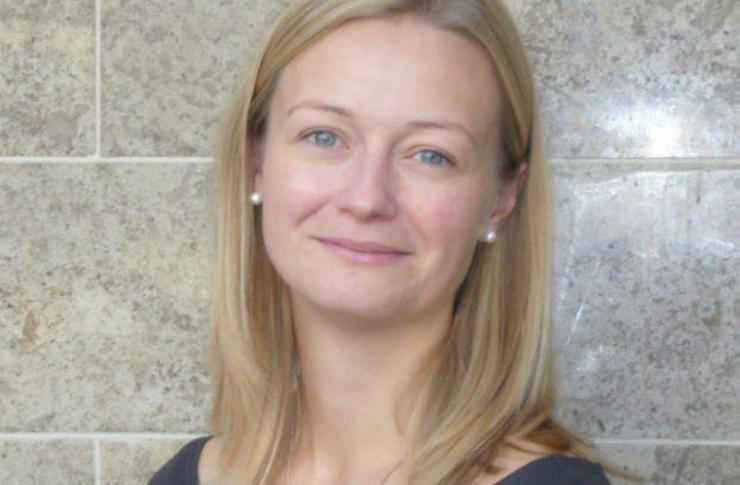
Andrew Soldan
Veterinary Director, Animal & Plant Health Agency (APHA)
What do you think are the best skills that you bring to your job?
Knowledge of both the science and regulatory aspects of the APHA’s work. Understanding of the big picture of government policy drivers, national veterinary capabilities and the practicality of what can be delivered. Ability to think strategically and set direction.
Why are you interested in bTB?
It is a zoonotic disease that has to be controlled to protect human health, animal welfare and farming businesses. Bovine TB is a complex multi-dimensional disease that makes it challenging and frustrating to deal with. However, both from the scientific and the national importance aspects, this makes the challenge fascinating.
Describe yourself in three words.
Dedicated. Logical. Lobsters.
What are you happiest doing when you’re not working?
Spending time with family, mending something that is broken and lobster fishing, preferably all at the same time.

Tom Rabbetts
National Farmers’ Union (NFU)
How did you get involved with bTB?
Although I already had some understanding of the disease having grown up on a dairy farm and worked previously in the dairy industry, I joined the NFU as a farm policy adviser working on bTB.
What do you think are the best skills that you bring to your job?
Remaining calm under pressure and critical thinking.
How do you think your colleagues would describe you?
I’ve asked them this question previously. Apparently, I’m helpful, supportive, approachable, a problem solver and strategic thinker.
What are you happiest doing when you’re not working?
Spending time with my family and friends.
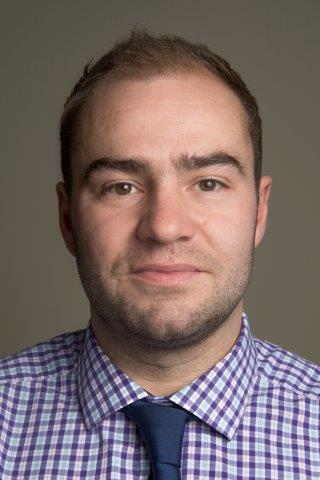
James Russell
Private veterinary surgeon, British Veterinary Association (BVA)
What do you think are the best skills that you bring to your job?
Listening to people and being innovative with ideas for development. I care deeply for our farming community and that drives my passion for bTB control.
Why are you interested in bTB?
I felt helpless through a long period of time working in Staffordshire and Derbyshire watching bTB move onto and damage my clients’ farms. I believe that by working as a team of farmers, their vets and their APHA case vets as a link to government, that we can devise control strategies for each farm. Many of the tools are here, and others are being developed and so it is an exciting time to be working with an enhanced armoury against bTB.
Describe yourself in three words.
Vet in shorts.
What publications do you regularly read?
The Week magazine, Vet Record, Farmer’s Weekly, anything mentioning Liverpool Football Club.
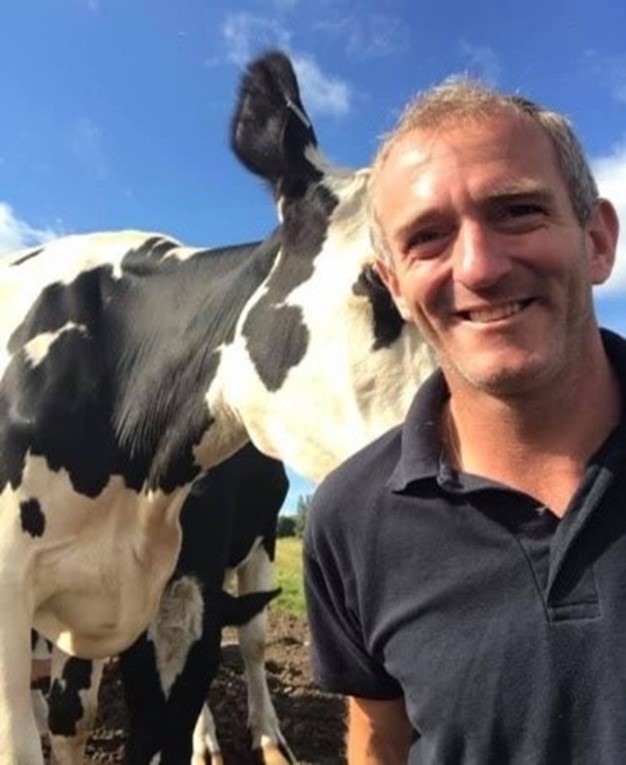
Rebecca Cavill
Private veterinary surgeon, British Cattle Veterinary Association (BCVA)
What is a typical day for you?
I’m a farm vet in north Devon so I normally start my day with a fertility visit on one of my dairy farms. This gives me an opportunity not just to scan cows but catch up with my farmers on any issues they may be having. From here I might go off to do a TB test, a health plan, calve a cow, disbud a goat or into meetings for BCVA or Torch Farm Vets. We have quite a lot of students come through the practice so some of my role involves mentoring them or some of our more recent graduates.
How did you get involved with bTB?
I am originally from Somerset and was fortunate enough that TB testing was a once a year occurrence on our suckler farm. I started working in north Devon when I graduated and working for a practice in the High Risk Area means that TB testing is part of most of your days. Having spent large portions of my week TB testing, I felt it important to try to see positives to the process. I also felt that you should not see bTB as a disease that you can’t help farmers get clear of or prevent coming on farm. However, I didn’t become a vet to stick reactor tags in cow’s ears and rather than get disheartened that we were making no difference, I hoped that becoming part of the bTB team in BCVA would give me an opportunity to see policy from the eyes of a practising vet on farm every day and hopefully influence bTB control in a positive way.
Who is someone you admire, and why?
I admire Sarah Tomlinson for her passion, drive and positivity to proactively engage with a disease that a lot of people feel very negative about.
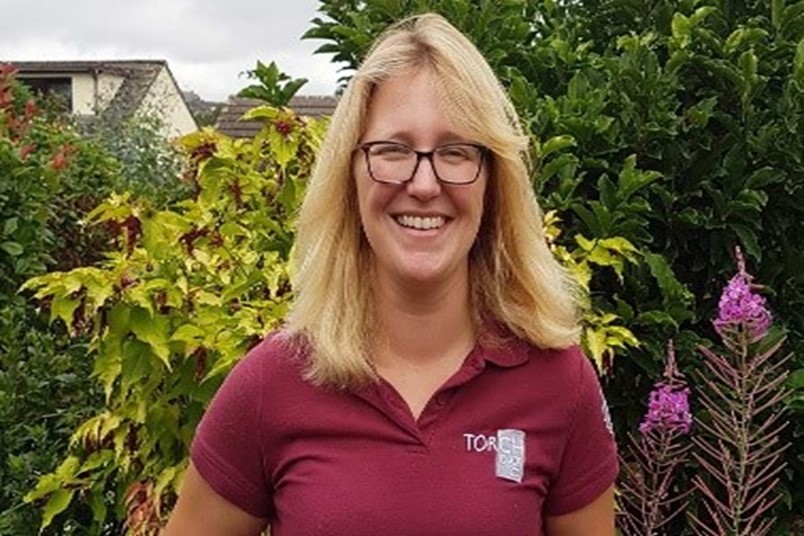
Members
Chris Addison
Farmer, Low Risk Area
Why are you interested in bTB?
I don’t want any farmers to go through the financial and mental pressures that happen when farms go down with bTB.
Why did you join the bTB Partnership?
To represent farmers in the Low Risk Area of England and influence development and implementation of government policy on bTB.
What would be your personal motto?
Be as you appear to be.
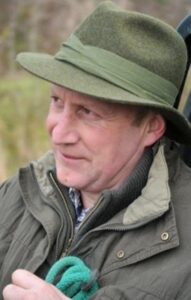
David Barton
Farmer, High Risk Area
In your view, what is the biggest benefit of the bTB Partnership?
A broad range of specialist expertise looking at bTB, with the goal of disease eradication.
What do you hope the bTB Partnership will achieve in the next five years?
I hope the Partnership will be able to achieve over the next five years, a similar reduction in bTB to what we have seen in the previous five and more.
What are you happiest doing when you’re not working?
Traveling, walking and cooking.
Flashback to when you were 10 years old. What did you want to be when you grew up?
A dairy farmer (I’m a beef farmer!).
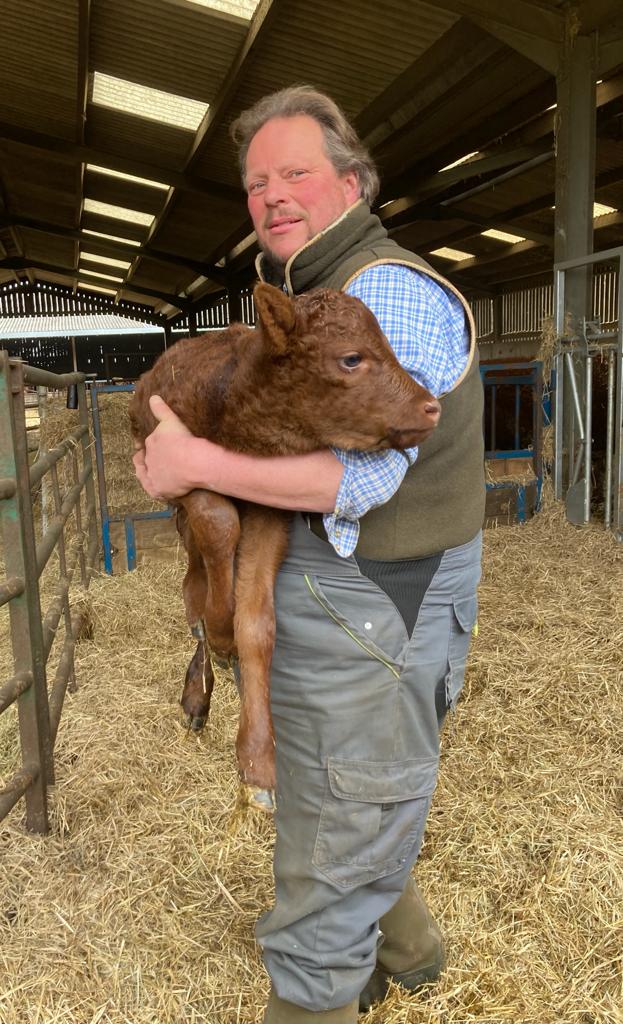
Paul Westaway
Farmer, High Risk Area
Why are you interested in bTB?
As a beef farmer living in Gloucestershire, TB is one of the main threats to our business.
Describe yourself in three words.
Enthusiastic, positive, friendly.
Why did you join the bTB Partnership?
We will only beat and eradicate bTB with a joined up approach from all parts of the industry.
What would be your personal motto?
Don’t walk away from negative people…. Run.

Stephanie Young
Local Authority
In your view, what is the biggest benefit of the bTB Partnership?
The collaborative working, vision and trust between multiple people from a wide range of backgrounds. We all have a common aim to influence the decisions and actions of others for the control and eradication of the most prolific notifiable animal health disease in GB.
What do you hope the bTB Partnership will achieve in the next five years?
In the next five years, it is hopeful that the foundations of the Partnership will become firmly seated and in doing so, members are able to influence industry and regulators’ behaviour on the importance of eradicating bTB. The Partnership will influence government policy on bTB, challenging decisions as appropriate where there is a lack of science, research or development as part of the government’s strategy. The outcome of the impact of the Partnership is to start to see a significant decline in the number of cases of bTB as a result of changing behaviours and appropriate control measures.
What is number one on your life bucket list?
Not sure there is a bucket list! Life is for living, not for making lists.
What would be your personal motto?
Never be afraid to put your head above the parapet.
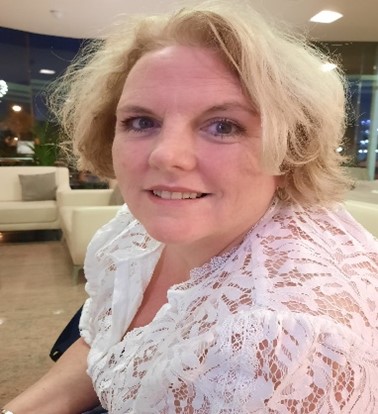
Professor Gareth Enticott
Academic
How did you get involved with bTB?
Partly by accident: Back in the mid-90s, I was doing some research on why people drank unpasteurised milk. I spoke to a lot of people about this and bTB would always come up. One day I went to speak to a farmer about it and he happened to be TB testing that day. A couple of days later a farmer who sold unpasteurised milk in the village I was doing my research went down with TB. The rest is history.
Why are you interested in bTB?
For me as a social scientist, there’s a lot going on: science, technology, politics, nature, farmers, vets. How they all interact is what interests me. But I also hope that understanding all these different parts will help to address the challenges associated with bTB.
What is number one on your life bucket list?
I’ve been to New Zealand a lot for my work, and seen many of the sights, but I’m yet to go to Hunterville to see the annual festival for New Zealand Huntaways.
What are you happiest doing when you’re not working?
Either riding my bike somewhere in the Brecon Beacons or making and drinking coffee. My latte art is pretty good these days.
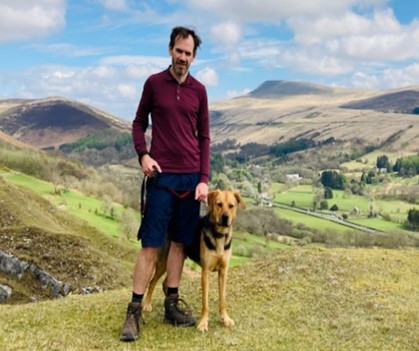
Dr Lindsay Heasman
Animal health consultant
How did you get involved with bTB?
I first became involved with bTB through my role as Project Manager for the TB Advisory Service. As a research scientist, I’ve worked with a variety of livestock diseases, but bTB was totally different. I began to understand the devastating impact a TB breakdown can have. I also learned that there are things that farmers can do to reduce the risk and impact of bTB and have enjoyed finding new ways to communicate these important messages.
What do you think are the best skills that you bring to your job?
I have a really enquiring mind and there is a lot to learn about bTB! There is also a lot of misinformation out there and I love talking with farmers to understand their situation and explain some of the science and policies surrounding bTB.
How do you think your colleagues would describe you?
I’d like to think that colleagues would say that I’m someone that gets things done and I’m never afraid to ask about something I don’t understand!
What are you happiest doing when you’re not working?
Outside of work, you’re likely to find me in my vegetable garden but I also enjoy general knowledge quizzing, cryptic crosswords and Wordle!
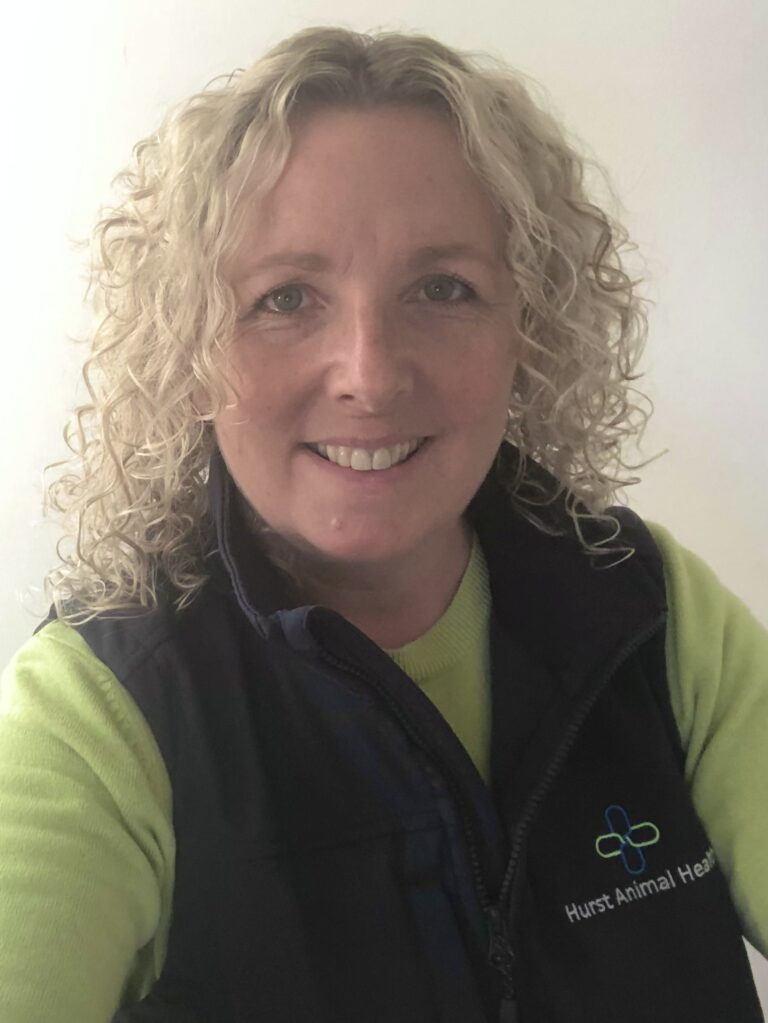
Kate Bowen
Private veterinary surgeon
What is a typical day for you?
There is really no such thing! It usually starts early with horses, dogs, sheep, and of course children to organise. Once the working day starts, I oversee all veterinary aspects of the various contracts our company holds. This includes the delivery of TB testing of cattle and other species via a network of veterinary practices, disease surveillance in dead wild birds and lately work on the avian influenza outbreak and helping refuges from Ukraine travel to the UK with their pets. You never quite know what is coming next but it is fast-paced and I really enjoy it. After work I coach my son’s football team and my daughter’s rugby team which is a fantastic way to end the day.
How did you get involved with bTB?
Initially as a farm vet working in the Welsh borders and carrying out TB testing on farm. Then providing veterinary oversight for the Veterinary Delivery Partnership contracts that provide TB skin testing in England.
Who is someone you admire, and why?
My parents. They’ve supported me in everything I’ve ever wanted to do and are always on the end of the phone for advice and a bit of moral support.
Flashback to when you were 10 years old. What did you want to be when you grew up?
I never wanted to be anything other than a vet, from before I could even say veterinary surgeon properly. No dreams of being a ballet dancer, train driver or rock star for me!
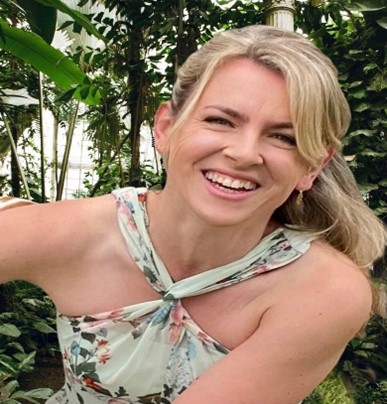
Sarah Tomlinson
Private veterinary surgeon
What is a typical day for you?
There is no such thing as a typical day for me, other than a dog walk and the school run! I have such a varied job. Some days I am traveling to speak to vets or farmer groups on bTB control, focusing on biosecurity. Other days I am at my desk writing articles and promotional material for the TB Advisory Service (TBAS). I do miss the clinical farm veterinary work, so my favourite days are where I get to go out onto farm to deliver TBAS visits and talk to farmers.
How did you get involved with bTB?
Many years ago, I was invited to attend local NFU meetings. At these meetings, I began to realise the impact bTB was having on farmers in my area. I knew from being a farm vet that a TB breakdown wasn’t pleasant, but I hadn’t quite grasped how all-encompassing bTB was for farmers. There was a lot of mistrust in government policy and many bTB myths talked about at these meetings: the test, badgers, government policies. I wanted to learn more about bTB, and I became passionate about sharing what knowledge I had gained. This led me to apply for the TB Eradication Advisory Group for England to share the real life experiences my community faced every day with policy makers. This led to becoming part of the TBAS team and doing what I do today.
Who is someone you admire, and why?
I admire all the farm vets who could have chosen a life in a warm small animal clinic, but instead chose to work in the farming industry. The work is physically tough. TB can impact farmers, but it impacts farm vets too. Finding TB reactors and stopping our farmers from trading is not what we want from our jobs; we want to be part of successful farm business team. I admire every one of them who has signed up to deliver TBAS visits to try and make a difference and to ensure bTB stays on the decline and the next generation of farmers knows what being a bTB free nation is.
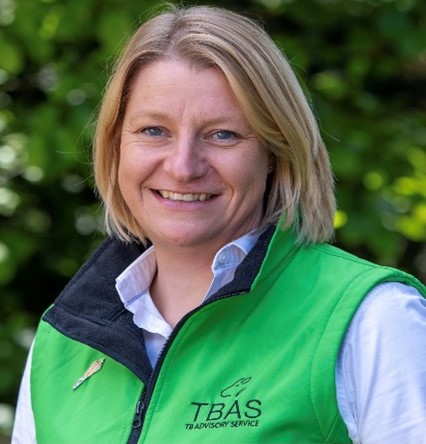
Professor James Wood
Academic
What is a typical day for you?
A normal day for me has changed massively over the last three years. Running a vet school and being involved in several committees (in Defra, the Royal College of Veterinary Surgeons and the Veterinary Schools Council) used to mean that I spent a lot of time on the train to London from my home in Newmarket, as well as my normal days in my Cambridge office, working with my vet school colleagues and research team. My previously frequent overseas travel, in particular to Ghana and Ethiopia (on bTB) where much of my research has been, dried up completely but I hope will restart. A normal day during the pandemic was almost entirely zoom; thankfully now I see real people again.
How did you get involved with bTB?
I first became involved in bTB research nearly 15 years ago, when invited to collaborate with APHA on a Defra programme on ‘problem herds’ although I had also seen the (sometimes avoidable) impact of the disease on a friend’s farm in East Anglia, where it is still thankfully relatively rare.
Flashback to when you were 10 years old. What did you want to be when you grew up?
When I was younger, becoming a vet was really attractive so that I could spend my life outside with animals. I’ve now ended up inside most days, which is the only element of my work that I regret. I mitigate this by spending the 1.5 to 2 hours a day travelling to and from work on a bicycle, which keeps me moving and helps to de-stress at the end of the day.
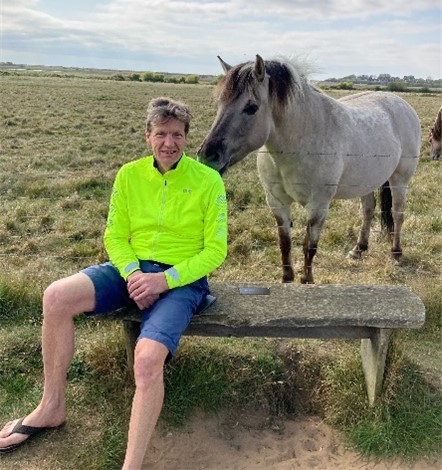
Dr Jane Gibbens
Academic
What do you think are the best skills that you bring to your job?
As an epidemiologist, I have an objective approach looking for technical solutions supported by the evidence. I recognise that there are many different perspectives and beliefs among everyone involved in seeking to control bTB, and I have a strong belief in people working together to sort problems. So my starting point is always to seek consensus, in this case on interventions that will control bTB, while recognising and seeking to minimise negative outcomes for everyone involved.
Why are you interested in bTB?
The impact of bTB is awful, and it really needs to be controlled. It is also a fascinating disease control challenge with a wealth of data from thousands of cases, making it very suitable for epidemiological analysis, which is my driving interest. The insidious nature of bTB coupled with difficulties in diagnosis make it technically challenging to control and the lack of societal consensus on how to control transmission between cattle and badgers adds a further intellectual challenge, which as a vet and an epidemiologist, I think I can contribute to overcoming.
Describe yourself in three words.
Competent, efficient, fair.
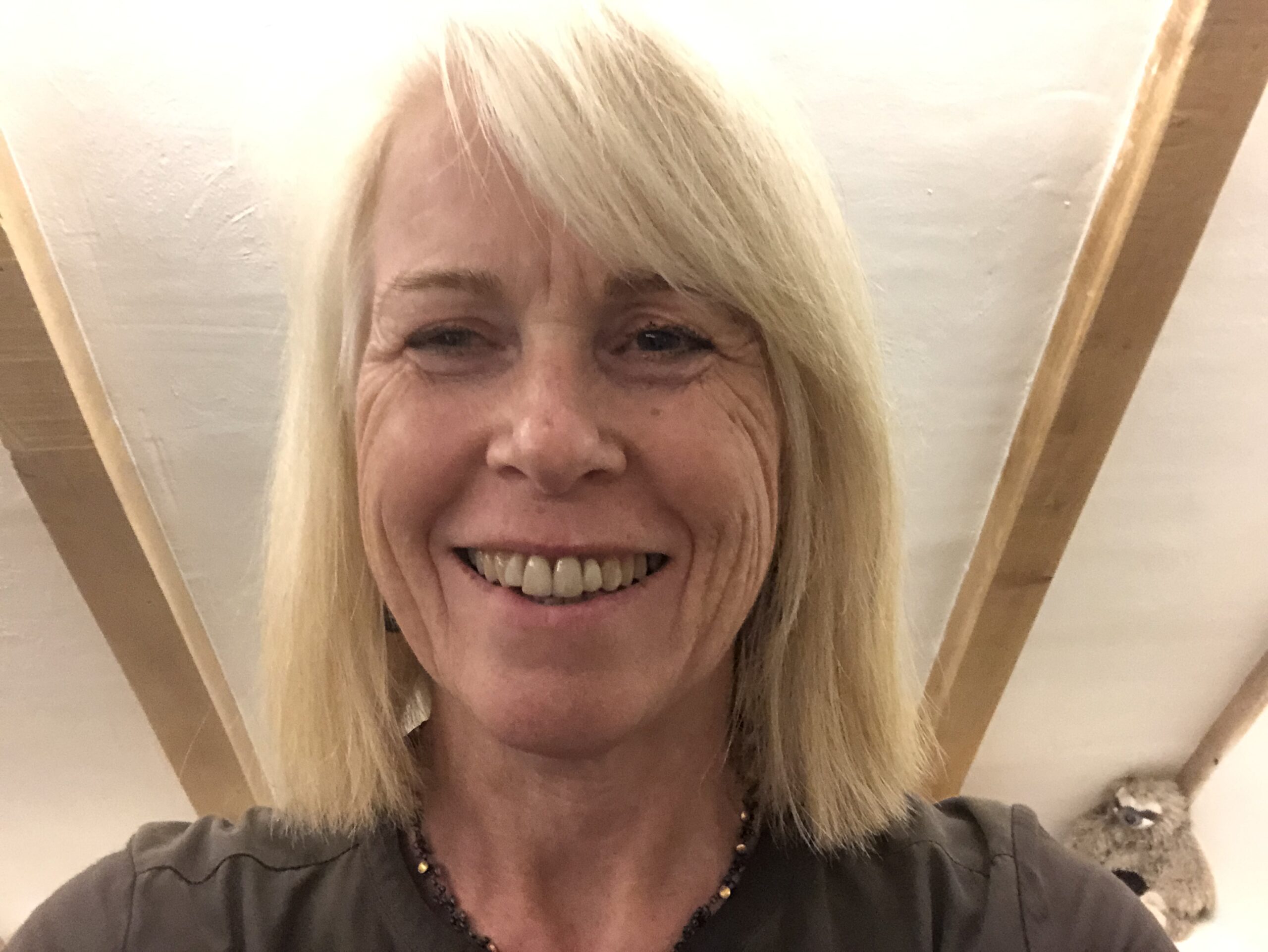
Professor Rowland Kao
Academic
What is a typical day for you?
For work, this mostly involves a combination of meetings, reading and reviewing papers (both scientific literature, and drafts or reports from people I work with are involved in). Sadly, there is little time to do any actual work myself. I mainly manage rather than doing any hands-on research! One thing I haven’t done for a few years, but am looking forward to, is doing a bit of teaching again.
How did you get involved with bTB?
When I completed my PhD, I was attracted to a one year job in New Zealand, both because the work itself was quite different from what I had previously done research on, but also because I enjoyed the idea of travel. The job itself involved mathematical modelling for vaccinating cattle against TB and the rest you can say, is (personal) history.
Who is someone you admire, and why?
When I first moved to the UK, I joined a project working with Angela McLean, who among other things is now the Chief Scientific Adviser for the Ministry of Defence. Angela is one of the clearest thinkers I know, but the thing that left the biggest impression on me was the effort she took looking after the careers of those who worked with her. One thing I’ve learned over the years, is that as individuals we have control over very little. How we treat others is one of the most important things and I learned an awful lot from her about this.
Flashback to when you were 10 years old. What did you want to be when you grew up?
I wanted to be an astronaut. The memory as a very young boy of seeing the Apollo 11 moon landing stuck with me for many years. Over time, that morphed into wanting to be an astrophysicist and eventually a physicist.

Professor Rosie Woodroffe
Academic
Why are you interested in bTB?
I’m an academic with a broad interest in how people and wildlife can coexist. Bovine TB is a huge problem for UK farmers, and there’s no doubt that badgers play a part in perpetuating that problem, but mass killing of badgers has a huge ecological impact in a country which is already one of the most nature-depleted in the world. I’m interested in how to find the best solution for both people and wildlife.
How did you get involved with bTB?
I first got involved in 1996 when I was asked to provide some insights on badger ecology to help support Lord Krebs’ review of the issue. I went on to become a member of the Independent Scientific Group on cattle TB, overseeing a whole raft of research on the issue, including the Randomised Badger Culling Trial. Now I run a research project exploring interactions between badgers and cattle, and what role badger vaccination might play in bTB control.
In your view, what is the biggest benefit of the Partnership?
The control of bTB is a technically complex problem as well as a controversial one, so it’s great to have a breadth of knowledge and experience in the Partnership to look at issues from a whole range of different perspectives. Having a range of views about the controversial elements is also enormously helpful. Even members who disagree with one another on certain issues find they agree on others.
